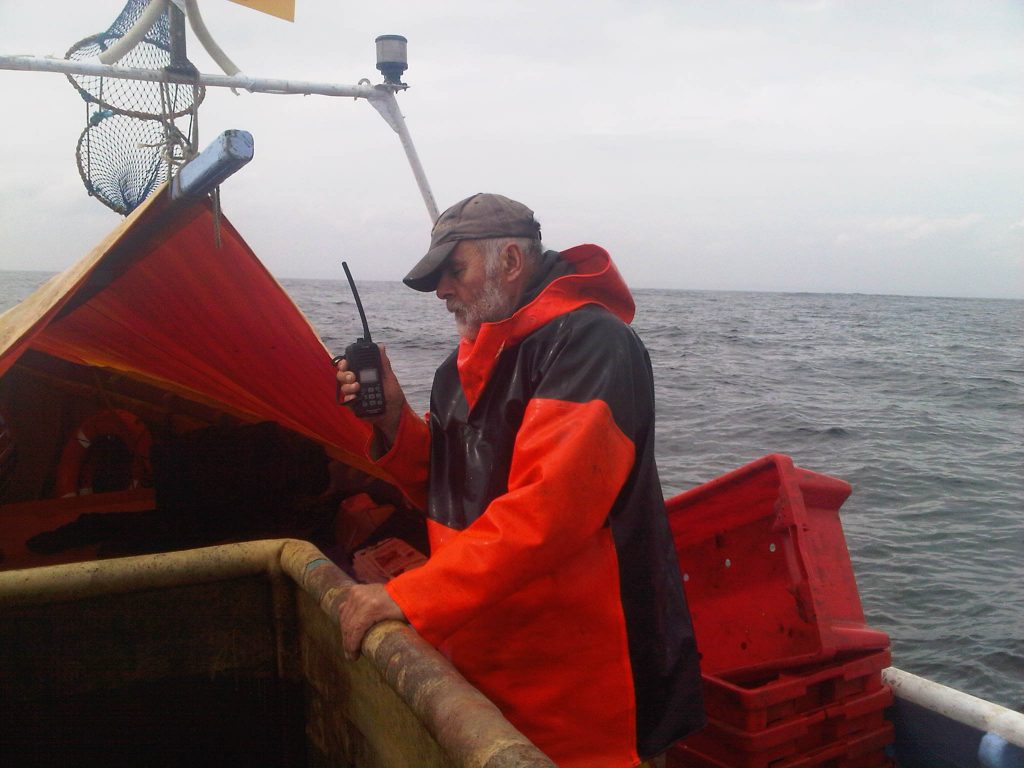23 May 2014
Coalition of fishermen, scientists and conservationists preparing to resist Commission proposal
Blanket Ban
The main driver for the Commission’s proposal for a blanket ban on drift-net fisheries appears to be the failure of Italy and perhaps other EU States in the Mediterranean, to enforce existing legislation prohibiting the use of drift nets for specific species like swordfish. Drift nets in some fisheries have high levels of bycatch of turtles, and cetaceans. Other drift net fisheries have insignificant levels of bycatch.
The
blanket ban, proposed by the Commission, if adopted, would close all of the UK
small scale drift-net fisheries for herring, mackerel, sole, bass, salmon, sardine
and mullet, some of which are certificated by
the Marine Stewardship Council. None of these fisheries has a significant unwanted
bycatch problem.
This video (also below) provides an insight into one of these well-managed,
small-scale, inshore fisheries.
An
Alternative: Infraction Procedures
When
the UK in the past has failed to implement EU legislation, the Commission has
not been slow to instigate infraction procedures against the UK Government. We
are at a loss therefore, to understand why the Commission is now reaching for
additional legislation to address a specific problem in the Mediterranean, before
it has exhausted the legal means available to it through infraction proceedings;
especially when it is quite clear that this course will extinguish legitimate
and sustainable small-scale fisheries in a number of member states. The maximum financial penalties are not minor
– up to £256,000 per year for each area of non-compliance.
Addressing
problems with enforcement of the existing legislation by prohibiting our relatively
benign fisheries would be high-handed in the extreme. As there is no suggestion of a significant
problem of incidental bycatch in our drift net fisheries,
this legislation if pushed through co-decision could fairly be described as
inappropriate, disproportionate, and in the final analysis, irrational. It is clearly easier for bureaucrats to reach for a
pen to create new legislation than it is to ensure effective implementation of
existing legislation. But that does not mean that the proposed ban is in any
sense justifiable. It is certainly irresponsible.
We
have written elsewhere why moving away from this
kind of blanket, one-size-fits-all, approach was one of the main strands in the
recent CFP reform, yet here we are again having to fight off exactly the kind
of legislation that has in the past delivered little, caused massive collateral
damage, created perverse incentives; and generally earned the Common
Fisheries Policy an appalling reputation for being ineffectual.
FisheriesScientists express Alarm
We are not alone in expressing our anxiety about
the Commission’s bulldozer approach. One of the most
highly regarded fisheries scientists in the world with long experience working
with the FAO in Rome and credited with saving the great whales in the
1960s and 70s comments:
“I, too, was amazed and distressed to read notice
of the completely mad EC proposal to ban all drift-nets. What in heaven’s name
is going on in Brussels?! Yes, there are some unintended catches just as
with ALL fishing gears. The problem is to see how to avoid those as far as
practicable; as with damage to the sea bed by trawls. But flat bans of broad
types of widely used gears – that’s crazy, misguided and possibly malicious.” Sidney Holt
Seasonality
and Inshore Fishing
In
its, characteristically superficial impact assessment, the Commission comments
that drift nets are usually only used at certain parts of the year and that
fishermen have the option of targeting other species or of using
alternative gears.
In
this Commission misunderstands that inshore small scale fishing, is generally
about adapting to the seasons and targeting species that are available within
the limited range of small vessels, using gear that is appropriate. Annual
income is therefore derived therefore from a range of different activities. It
is like a stone arch; if a single stone is extracted the whole edifice falls.
That is why it is important for us to defend these individual small scale drift
net fisheries. The knock on effects of the ban would be widely felt as vessels
displaced from these sustainable fisheries try to survive in other perhaps more
pressurised fisheries. Here is the law of unintended consequences often seen in
play in fisheries management.
What Now?
Although
the Commission says that it launched a “web based consultation” on the proposed
ban, very few people seem to have heard about it. Certainly the advisory
councils have not had an opportunity to express an opinion. This in itself is a
failure of good governance, in a matter of profound significance for a large
number of small-scale fisheries.
It
is important therefore that all those potentially affected by this blanket
approach push back against it. Already, a broad alliance of fishermen,
fishermen’s organisation, conservationists and scientists are signalling that
the Commission has taken a wrong turning. We can expect some powerful member
states to resist this debased version of the precautionary approach. Some
fishing gears in some circumstances do pose an unacceptable threat to wildlife
and it is vital that bycatch problems in those fisheries are resolved. But to
revert to a discredited blanket ban approach, with all the incidental
collateral damage that will cause suggests that there is something far wrong in
the Commission’s thinking as it limps to the end of this Commissioner’s period
of tenure.

